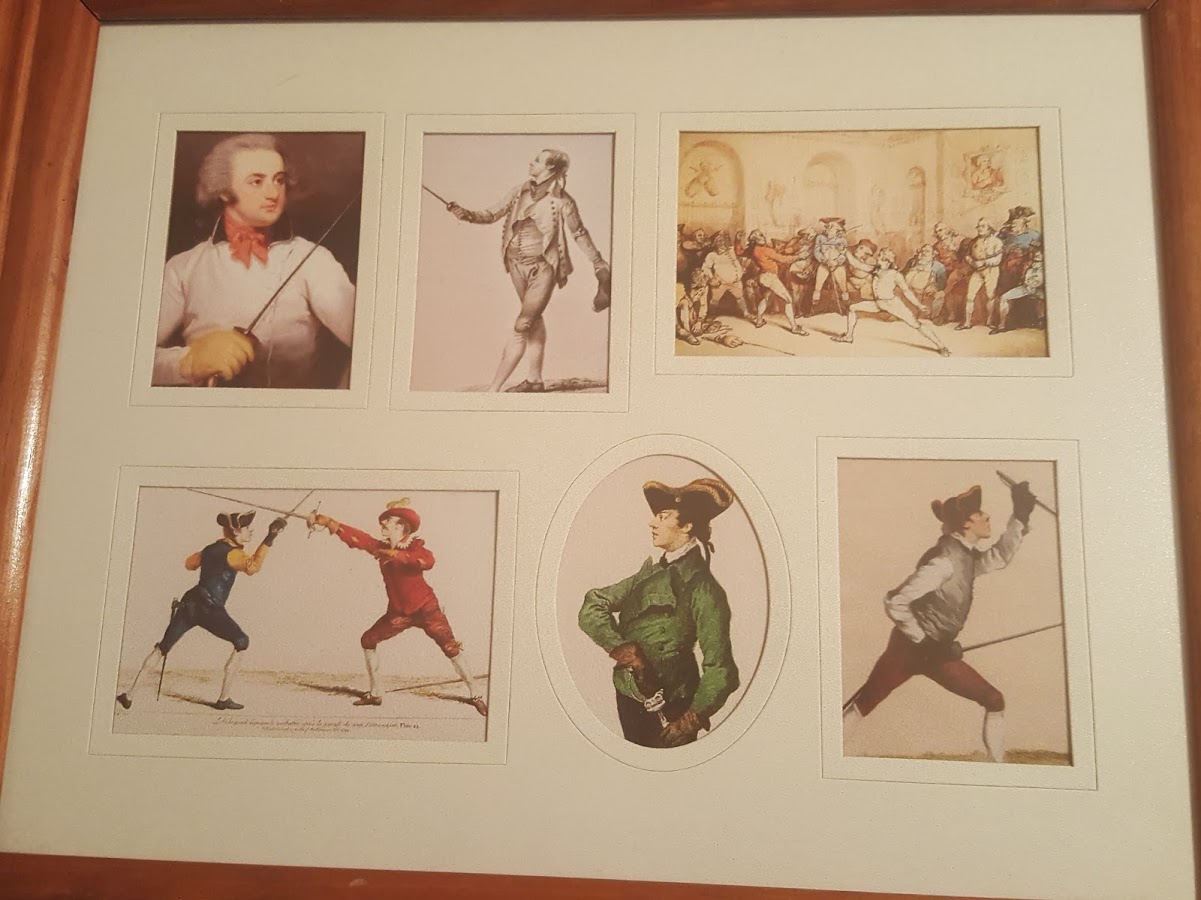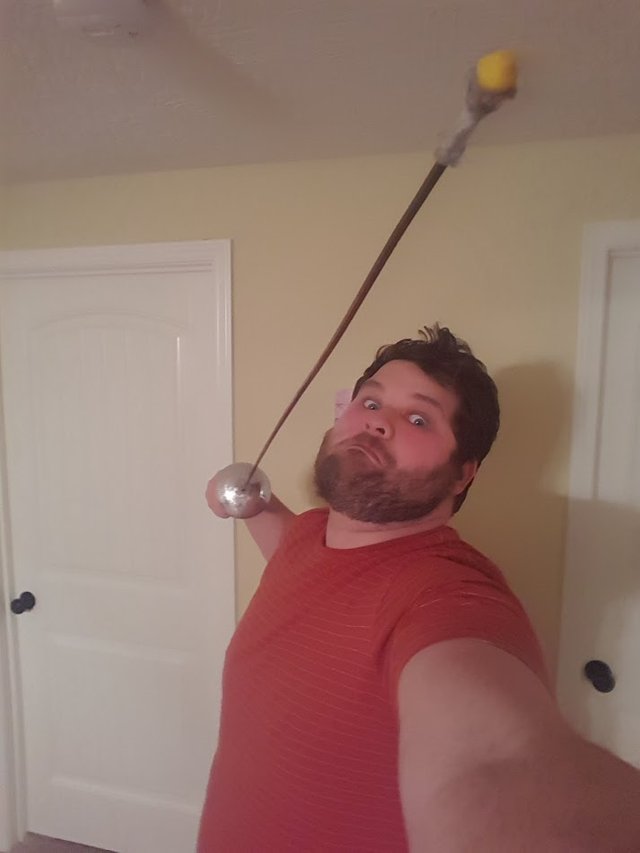
I picked up fencing a little over two years ago. It was at a time where I was frustrated with myself. I was disinvited from playing in a band. I blamed myself for not being good enough at playing music and never really trying as hard as I could when it mattered (which should've been before I tried playing in a band). Being in a band was always something I wanted to do. I love music. I have a good ear. I felt like wasted potential and felt that maybe it was time to come to terms with never really getting my act together.
"What does that have to do with fencing!?"
My musical woes are not completely unrelated, because they would become the logs that fueled the flames of my new quarter life crisis - Fencing. I was watching Markiplier with my wife, when I received a text from a good buddy of mine. He had recently taken fencing lessons from a man who had been fencing for decades, had one eye, and had the wisdom of Yoda... I'm paraphrasing of course, but that was pretty much the gist of what he was telling me. I was sold. He seemed awesome!
I looked up the mysterious sword master, Nick Evangelista who happened to live no more than a couple miles from my house. He started fencing at age 19 under the teaching of the passionate and harsh, former actor turned Olympic competitor Ralph Faulkner. Nick's first lesson might have been his last as he quickly learned that he was not the natural born swashbuckler he thought himself to be. Subjected to the embarrassment of being yelled at for every mistake he made, it took Nick some soul searching and two weeks to build up the courage to show up for another lesson. When he showed up, he never stopped. He went on to keep getting better, traveling to Europe, becoming Mr. Faulkner's assistant, starting his own school, moving to Missouri to start a farm, and writing several books on fencing.
45 Years Later
I walked to my would-be teacher's house to have my first lesson. There's something cool about walking a couple miles to learn a martial art. It makes the whole thing feel adventurous. The sun was setting as I made my way through neighborhoods and listening to "The Quesiton 8-bit version" by Emery. When I arrived, I was greeted first by the sound of barking chihuahuas before Nick even made it to the door. He wasn't harsh like his teacher. He made that abundantly clear. He also promised to make me the best fencer I could possibly be; A thinking fencer that prizes the "logic of the sharp point" instead of merely getting a touch to make the loud buzzer go off. He explained that fencing is an art as well as a science. I was introduced to the French school of fencing, which prizes strategy and economy of motion instead of sheer strength and speed. I was shown the foil- the teaching weapon of fencing, the on guard stance, advance, retreat, and that next lesson we would cover the lunge. He even told me how he lost his eye. Just kidding. He has both eyes. He can't see straight when he has both eyes open, so he keeps one closed. It was a normal first lesson followed by many more to come.
Why I Fence
I started fencing because of my insecurities about being kicked out of a band in addition to many other passions I pursued and abandoned. I was looking for something to help build my confidence. I was tired of losing to myself. I lacked the drive to work hard for anything I cared about and I beat myself up over it. This way I could actually stick with something; I could pick up a sword and fight back.
Fencing offers so much confidence because it's challenging; because fencing is challenging, it brings a lot of physical and mental benefits. There are few activities that connect the mind and body in such a way that Fencing does. It often gets referred to as "physical chess". A fencer needs to be able to move and think at the same time. This mind and body connection can even work as a buffer against aging. Nick will be 69 this month. Last week he was suffering from a sinus infection, and a cracked thumb on his sword hand caused by a defective saber. He felt like crap.., and he's still able to keep up with my strong, young 27 year-old self. There's tons of anecdotal evidence that suggest that fencing masters tend to live long, active lives. Nick's teacher was actively teaching at 95 before he suffered a massive stroke and died two weeks later. Nick thinks he can beat that record and teach until he's at least 100. I think he can do it... I'm a little biased though.
Fencing thought becomes useful in many areas of life outside of Fencing. It helps break every day challenges into smaller parts and puts them in their proper place. The same method fencers use to analyze their opponents can be used to analyze a number of different situations in a more calm, and rational manor. After all, keeping a cool head when someone is coming at you with a sword makes many situations a bit more manageable.
Fencing is timeless. It connects us to the past; it's been said that the history of the sword is the history of mankind. It's useful in the present; a non-technical experience in this very technological world. It will be there in the future; after WW3 turns our present golden age into a post-apocalyptic wasteland where we are left to fend for ourselves in a future that feels like hundreds of years in the past.
That is why I fence. So that I can survive the Apocalypse.

I think that fencing was really the last cool post-medieval martial art before pistols came along.
Swashbuckling with style. :)
Downvoting a post can decrease pending rewards and make it less visible. Common reasons:
Submit
Stupid pistols.
Downvoting a post can decrease pending rewards and make it less visible. Common reasons:
Submit